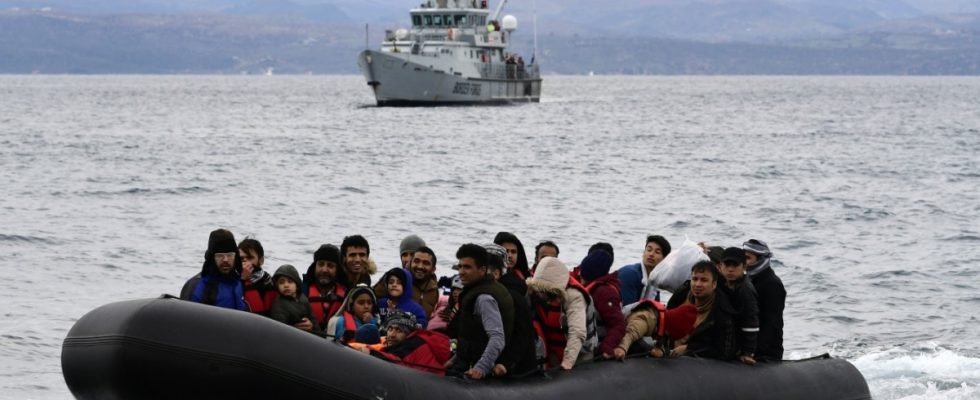With remarkable friendliness, the leaders of the European Union congratulated Turkish President Recep Tayyip Erdoğan on his re-election. She is looking forward to “further expanding the EU-Turkey relationship,” said Commission President Ursula von der Leyen on Twitter. Council President Charles Michel, representing the 27 EU governments, wrote almost in the same vein that they wanted to “deepen” relations. It almost sounds like sarcasm.
I still have fond memories of how Erdoğan embarrassed Michel and von der Leyen at a meeting in Ankara in April 2021. For the official photo, he had the Belgian seated next to him on an armchair, but the German on a sofa, as if she were part of the supporting program. The affair called “Sofagate” hurt Ursula von der Leyen and permanently damaged her relationship with Charles Michel.
Even apart from the diplomatic incident, Erdoğan is hardly doing anything that could be “expanded” or “deepened” according to the democratic, rule-of-law principles of the EU. He suppresses the opposition, he has media professionals locked up in prison, he maintains good relations with the warlord Vladimir Putin, he repeatedly smacks the EU with insulting rhetoric and does not shy away from blackmail. But from a political point of view, Erdoğan’s election victory is at least comfortable for the European Union. You know what you have.
No one wants to have debates about EU membership right now
Opposition candidate Kemal Kılıçdaroğlu also embodied the hope for a more democratic Turkey in the institutions of the EU. On the other hand, in the past few weeks, diplomats in Brussels have been thinking about how to accommodate a possible election winner, Kılıçdaroğlu, without reviving debates about Turkey’s EU membership. Nobody in Brussels wants to run them at the moment. Even the question of how quickly Ukraine and the states of the western Balkans could be brought closer to the EU offers enough grounds for conflict in the group of 27 member states.
Turkey is still an official candidate for accession to the European Union. The negotiations opened in 2005 and have been permanently on hold since Erdoğan transformed Turkey into an increasingly autocratic state after defeating the military coup in 2016. Opinions differ on who is to blame for the alienation.
Some believe that Erdoğan never seriously believed in the prospect of accession and only changed his original democratic-European course in order to retain power. The others believe that the Europeans only negotiated half-heartedly. In any case, a state visit by the then French President Nicolas Sarkozy in 2011 is considered a turning point. Sarkozy, chewing gum and verging on impertinence, told the host what German Chancellor Angela Merkel dared not openly say at the time: Turkey’s accession was out of the question. Erdoğan was badly offended.
In fact, the refugee agreement no longer works
The migration agreement concluded in 2016 is symptomatic of the relationship between the EU and Turkey: one hand washes the other. Erdoğan pledged to block off escape routes and to take back migrants who had nevertheless entered the EU irregularly via Turkey. In return, the EU undertook to allow Syrian refugees from Turkish camps to enter Europe regularly – exactly as many as are sent back to Turkey for irregular entry into Europe. As a bonus for the deal, Erdoğan received six billion euros from the EU.
Dirty deal or groundbreaking concept to end dying in the Mediterranean? Here, too, opinions differ. In fact, the agreement no longer works because Erdoğan refuses to take back people who have fled. On the contrary: two years ago he opened the Turkish borders to refugees who wanted to go to Europe. The border with Turkey, with its walls and fences and the overcrowded refugee camps on the Greek islands, is emblematic of a European migration policy that Erdoğan has repeatedly maliciously called “inhuman.”
His challenger Kılıçdaroğlu campaigned with promises to banish millions of Syrian refugees from Turkey. This triggered considerable unrest in the EU, which is already dealing with a sharp increase in the number of refugees. In relation to Erdoğan, there is at least hope that the migration agreement can be revived with even more billions of euros. This is possibly what Ursula von der Leyen and Charles Michel mean by “expanding” and “deepening” relationships.
A similar hope may have driven NATO Secretary General Jens Stoltenberg when he congratulated Erdoğan: “I am pleased to continue our work together and to prepare for the NATO summit in July,” Stoltenberg wrote on Twitter. Erdoğan is still blocking Sweden’s NATO membership. Some deal should be found in the question before the alliance’s top meeting in Vilnius.

